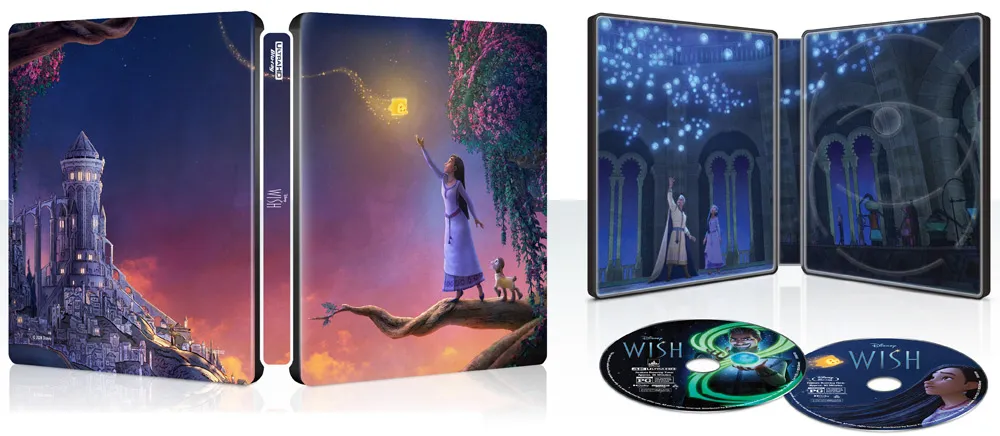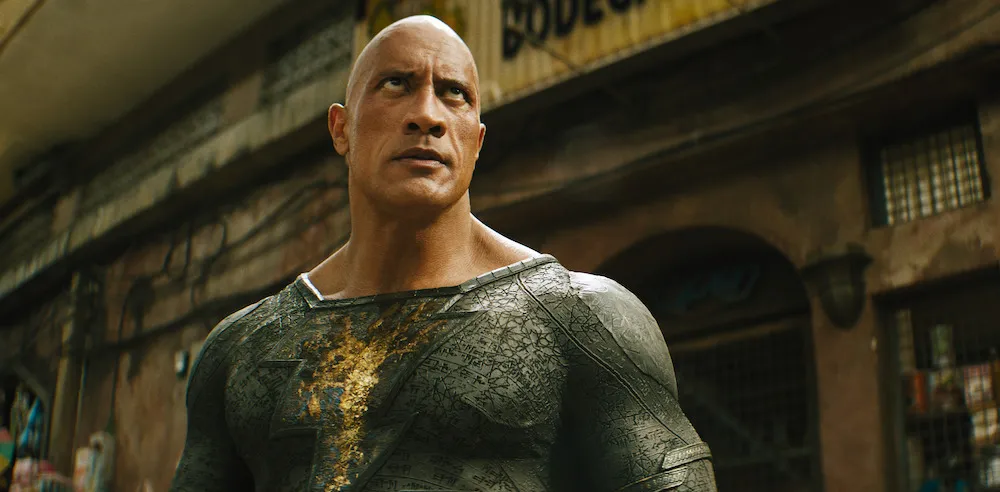“Come, let us go down, and there confuse their language, so that they may not understand one another’s speech. So the Lord scattered them abroad from there over the face of all the earth, and they left off building the city.”– Genesis 11:7-8
While the above biblical verse doesn’t appear in the film (but is used in the theatrical trailer), it does sum up what the underlying theme of Alejandro Gonzalez Inarritu’s international drama, Babel, is: misunderstanding and disconnection on a global scale. The story of a shot heard around the world and the implications that both the event, and the miscommunications caused by it, have on four disparate groups of people from four very distant countries and distinct cultures is an uncompromising film that offers no easy answers, but makes for arresting drama.
Told in Inarritu’s trademark, non-linear style, “Babel” opens with a Moroccan family obtaining a rifle so they can protect the goats that they rely on for their livelihood. When the two family’s two young sons, Ahmed and Yussef (Said Tarchani and Boubker Ait El Caid), take the rifle to see if the seller’s claim of its accuracy and distance are correct, they accidentally hit a tour bus and severely wound an American tourist named Susan (Cate Blanchett). She is on vacation with her estranged husband Richard (Brad Pitt) following the death of their newborn child (apparently a victim of Sudden Infant Death Syndrome). Hours away from a hospital, the two are taken to the nearby village of the bus” tour guide in the hopes of obtaining help.

Back home in San Diego, the couple’s Mexican housekeeper, Amelia (Adrianna Barraza), is taking care of Susan and Richard’s other two children, Debbie (Elle Fanning) and Mike (Nathan Gamble). Amelia is getting ready to head to Mexico for her son’s wedding when she gets the news about the shooting. When the person who was supposed to come in to watch the kids can’t make it, Amelia decides to bring them along with her to Mexico. Meanwhile, in Tokyo, a widower named Yasujiro (Koji Yakusho), who is tied to the rifle in question, attempts to deal with both the memories of his late wife and his rebellious (and hearing-impaired) teenage daughter, Chieko (Rinko Kikuchi).
Miscommunication, isolation, relationships between parents and their children and some pointed views on immigration and the ever-growing problem of xenophobia being spread by governments and the media, Babel clearly has a lot of things on its mind. With such weighty, downbeat issues to deal with within a 143-minute time span, it would have been very easy for Inarritu and company to mess things up and turn the movie into a preachy, incoherent torture session that could make viewers suffer as much as the film’s characters do.
Fortunately, Inarritu knows how to make material like this work. He takes his time to address and examine the intimate details and various themes brought forward in the intertwining, complex script co-written by him and Guillermo Arriaga (who also shared writing duties on Inarritu’s 21 Grams and Amores Perros). Strengthened by the brilliant editing of Douglas Crise and Stephen Mirrone (both who worked on 21 Grams) and Rodrigo Prietro’s handsome, documentary-style cinematography and a beautiful international score by Gustavo Santaolalla, Innaritu successfully envelopes us into the multiple stories by carefully building tension, urgency and drama en route to one hell of an emotional payoff in the third act. Most directors today have trouble telling one story in a linear fashion, let alone multiple ones that take place at different times. Innaritu proves his worth as a cinematic artist by making the work he does here look easy.

While Brad Pitt and Cate Blanchett are featured prominently in the advertising, it should be noted that the duo are only in Babel for about 40 minutes (maybe even less). Their performances are quite good (especially Pitt, who should stick to material like this that requires him to actually act more often) but it is the wealth of superb turns by the remaining ensemble cast that really impresses here. Gael Garcia Bernal, as Amelia’s nephew Santiago and Koji Yakusho as Yasujiro are both terrific, Adriana Barraza gives a sympathetic, moving performance as Amelia, while Said Tarchani and Boubker Ait El Caid make quite the debut as the Moroccan brothers who touch off the tragic chain of events.
But it is Rinko Kikuchi’s stunning performance as the rebellious Chieko that is the acting centerpiece and heart of the film. Expressing the troubled teen’s angst, loneliness, wanting and inner turmoil largely through her facial expressions, Kikuchi’s brave, Oscar-nominated (and very worthy of winning) performance is a marvel to watch and experience. It’s pretty much a given that Jennifer Hudson will win Best Supporting Actress at this year’s Oscars for her work in “Dreamgirls.” If there is any justice, however, it is Ms. Kikuchi’s name we will hear instead.
A lot of people have compared Babel to last year’s Best Picture winner, Paul Haggis” Crash. While I greatly admire the racial drama, I have to admit that I find it a bit insulting to compare it to Inarritu’s film. Yes, both films rely heavily on happenstance and both tackle heavy social issues. But if one has to compare Babel to Crash, the latter comes off as a bit simplistic in its storytelling, morals and resolution.

Babel, on the other hand, tackles its themes with blunt honesty, no manipulation, and a resolution that, while showing glimmers of hope via acts of compassion, isn’t exactly the neat and pat storybook ending you usually find with a Hollywood production. Babel is a hard, emotionally draining film experience. It also happens to be a poignant, significant work of cinema that showcases a great filmmaker working at the absolute top of his game.
Inarritu and Prietro shot Babel using different types of film stock and formats (Super 16 blown up to 35mm for the Morocco sequences, Super 35 for the Mexico scenes and anamorphic lenses for the Japan), all which were formatted for the 1.85:1 aspect ratio (modified here to approximately 1.78:1). The sequences in Morocco and Mexico have a faded, somewhat grainy look to them, while the Japanese scenes have a bit more color and a lot less grain.
Presented in a 1080p/MPEG-2 encoded transfer, Babel looked as good as it did in the theater and a lot better than I expected it to be on Blu-ray. I was never a fan of the standard DVD transfer on Inarritu’s 21 Grams, and was expecting a similarly grainy nightmare on Babel. While the grain is present throughout, it is never distracting. It gives the film the rougher edge that it needs to help get its point across. The colors, while de-saturated, also are strong enough to make a positive impression. Detail is quite pronounced, and flesh tones look to be spot on. I noticed no compression artifacts at all during the film’s 143-minute running time either. I am sure that this was a tricky film for Paramount to transfer, but I think that the studio really did a nice job handling it.
Despite being produced in the age of Dolby Digital Surround, DTS, PCM and so on, Babel has a soundstage that is definitely old-school. Paramount includes only two audio tracks on this disc: English and a French Dolby Digital 5.1 track. Every once in a while, a bit of surround will chime in to wake up the back speakers, but for about 99 percent of the time, the sound comes from the fronts, which is not necessarily a bad thing. The dialogue and multitude of dialects are as clear as a bell. When the film’s music kicks in, which is often, it does so with quite a punch. Given the nature of the film, the sound design and audio presentation on this Blu-ray Disc are just fine.

I wasn’t expecting much, if anything, when it came to bonus material on Babel. After all, there have been two standard DVD releases of 21 Grams and neither had anything of note on them except for a twenty-minute featurette on the second release. That said, it still would have been nice to have had at least something” anything” along those lines on this disc. Given the broad canvas the film covers, the global locations and the ensemble cast that is associated with it, a really good “making of” could easily have been assembled. I’ve heard people state that perhaps they are going to re-release the film in another edition somewhere down the road, but come on. This isn’t Star Wars or Pirates of the Caribbean. You get one shot with a film like this in terms of enticing people to buy it. And it’s not like they didn’t have the time to whip one together (I saw a finished print of the film late last summer).
What we do get for an extra (singular) is a two-and-a-half minute Theatrical Trailer in 1080p. The excellent trailer looks great and has sound bouncing all over the place. That’s right, if you want to see what Babel might be like with a full-blown 5.1 surround track, this is your one and only chance.
2006 was a sterling year for Mexican filmmakers in Hollywood: Alfonso Cuaron gave us the brilliant Children of Men, Guillermo Del Torro dazzled us with Pan’s Labyrinth and Alejandro Gonzalez Inarritu gave us this haunting, remarkable drama. There is a reason why the film has been nominated for seven Oscars this year: it is worthy of all of them. Even without any sort of solid supplements to speak of, I still give this Blu-ray release a very high recommendation. If you are going to watch one of 2006’s best movies at home, you might as well watch the edition with the best picture and sound transfer.
– Shawn Fitzgerald


